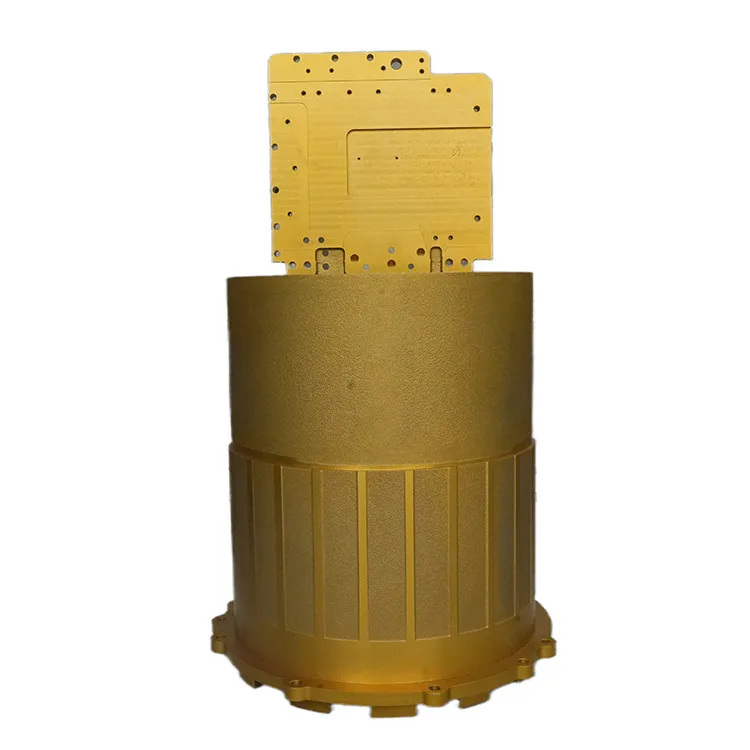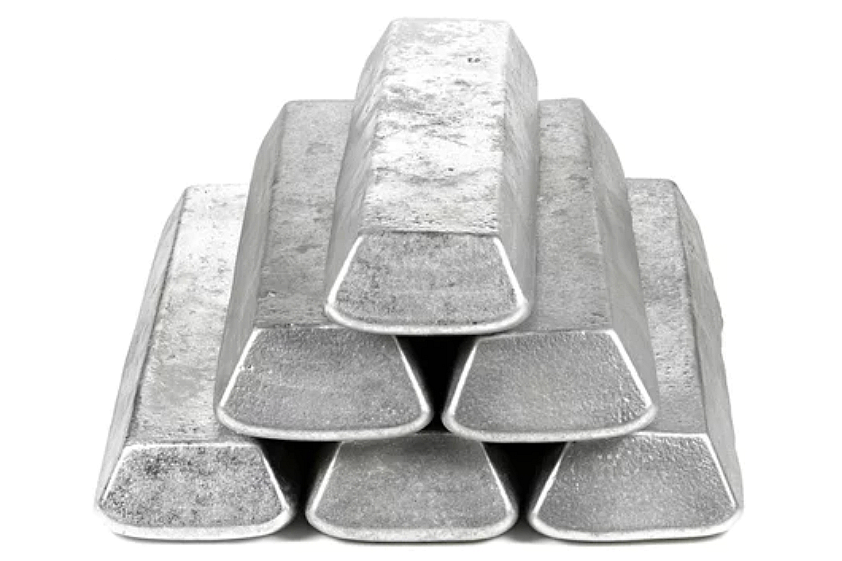Exactly How Aluminum Foundries Add To Numerous Industries: A Comprehensive Summary
Aluminum shops function as important suppliers throughout multiple industries, including automotive, aerospace, construction, and electronics. They create components that are not just light-weight however likewise long lasting, boosting the efficiency of numerous items. With sophisticated spreading techniques and a dedication to sustainability, these factories are adjusting to satisfy evolving sector demands. As they innovate, the influence of aluminum castings on different applications elevates important concerns concerning the future of manufacturing. What exists in advance for this crucial industry?
The Duty of Aluminum Foundries in the Automotive Sector
As the vehicle market increasingly welcomes lightweight materials to boost gas performance and performance, aluminum factories play an essential duty in this evolution. These centers concentrate on the manufacturing of light weight aluminum castings, which are important parts in contemporary vehicles. By offering high-strength, lightweight components, light weight aluminum shops make it possible for suppliers to reduce the general weight of lorries, ultimately bring about improved fuel economic climate and lowered emissions.
Light weight aluminum's resistance to corrosion better improves automobile longevity, making it an eye-catching choice for car manufacturers. Foundries use innovative methods such as die spreading and sand casting to produce complex and exact components, making certain that they satisfy rigid industry requirements. Additionally, the ability to reuse light weight aluminum efficiently contributes to an extra lasting manufacturing process. As the automobile field proceeds to introduce, aluminum shops will continue to be crucial in providing the materials required for the following generation of vehicles, sustaining both efficiency and ecological objectives.

Aerospace Applications of Aluminum Castings
Aluminum spreadings are essential to the aerospace market, supplying a mix of light-weight toughness and longevity that is critical for airplane efficiency. These spreadings are used in numerous elements, such as engine components, architectural frames, and landing gear, where weight reduction is vital for fuel performance and total safety and security. The flexibility of light weight aluminum enables complicated geometries that improve aerodynamic effectiveness while preserving architectural integrity.
Furthermore, developments in casting technologies have actually enhanced the precision and surface coating of light weight aluminum components, decreasing the demand for substantial post-processing. This efficiency not only increases manufacturing timelines but likewise decreases expenses, making aluminum an eye-catching option for makers. The corrosion resistance of aluminum guarantees durability and reliability in severe operating settings, further developing its duty in aerospace applications. As the market evolves, aluminum spreadings remain to be a vital material, driving advancement and sustaining the advancement of next-generation aircraft.
Construction Industry Innovations Through Aluminum
The building and construction industry has significantly taken on light weight aluminum due to its lightweight residential properties and versatility, paralleling its effective applications in aerospace. Technologies in light weight aluminum design have actually caused stronger, extra reliable structures, making it possible for building contractors and architects to explore brand-new opportunities. The product's resistance to corrosion and low maintenance needs make it particularly appealing for both commercial and domestic jobs.
Aluminum's versatility helps with the creation of elaborate designs, enabling visual enhancements that were previously tough with standard products. Prefabrication techniques have actually likewise progressed, using aluminum to lower construction time and costs significantly. Additionally, the energy efficiency of aluminum systems-- such as window frames and roof covering-- adds to lasting structure practices, straightening with modern environmental criteria. As the building sector remains to welcome these improvements, light weight aluminum's role is anticipated to expand, driving additional advancement and adding to the growth of resilient frameworks.
Electronics and the Need for Lightweight Light Weight Aluminum Parts
With the fast advancement of technology, the need for lightweight light weight aluminum components in the electronics field has actually surged. As devices become more mobile and portable, suppliers seek materials that supply both longevity and weight decrease. Light weight aluminum, with its outstanding strength-to-weight proportion, has arised as a favored option for parts such as cases, warmth sinks, and architectural assistances.
Making use of aluminum not just boosts item performance however likewise adds to power efficiency, as lighter devices call for less power during operation. Additionally, aluminum's excellent conductivity makes it perfect for digital applications, making certain efficient warm dissipation and reducing the danger of overheating.
As consumer choices shift towards light-weight and smooth gadgets, aluminum foundries play an important duty in satisfying the developing demands of the electronics market (Aluminum Foundry). Their capacity to create premium and exact light weight aluminum components sustains development, making it possible for makers to press the limits of layout and performance
Sustainable Practices in Light Weight Aluminum Foundries
As the electronics market progressively focuses on sustainability, light weight aluminum shops are adapting their methods to line up with these environmental objectives. Numerous shops are carrying out recycling programs that redeem light weight aluminum scrap, significantly decreasing the need for resources and reducing waste. By using energy-efficient innovations, these facilities are lowering their carbon footprint; for instance, utilizing electrical heaters as opposed to traditional gas-fired ones can result in substantial power cost savings.
Additionally, aluminum factories are investing in water preservation procedures, such as closed-loop systems that reuse water made use of in cooling down processes. These techniques not just lower water usage however likewise mitigate the ecological influence associated with wastewater discharge. Furthermore, lots of shops are exploring renewable resource resources, such as solar and wind power, to meet their energy visit needs sustainably. With these efforts, aluminum factories exemplify a commitment to ecological stewardship while remaining to satisfy the demands of the electronic devices industry.
Future Patterns in Light Weight Aluminum Foundry Technologies
Emerging modern technologies are poised to change light weight aluminum foundries, improving performance and product quality while progressing sustainability efforts. Developments such as artificial knowledge and device discovering are anticipated to optimize production procedures by forecasting equipment failures and improving resource appropriation. The combination of innovative robotics will certainly simplify operations, lowering labor costs and decreasing human mistake.
Additive production, or 3D printing, is additionally acquiring traction, enabling the manufacturing of complex geometries that were previously unattainable with conventional approaches. This shift can result in significant material cost savings and minimized waste. In addition, clever foundries making use of IoT (Web of Points) modern technologies will certainly allow real-time monitoring and information analysis, promoting positive decision-making.
The fostering of cleaner melting technologies and recycling methods will further reduce the environmental footprint of light weight aluminum factories, making them extra sustainable. Collectively, these patterns indicate a future where aluminum shops can run with greater effectiveness and duty.
Regularly Asked Questions
What Are the Environmental Effects of Aluminum Foundries?

Exactly How Do Foundries Make Sure Quality Control in Aluminum Spreading?
Shops ensure quality assurance in light weight aluminum spreading by implementing extensive evaluation processes, utilizing sophisticated modern technology, performing routine product screening, and adhering to market requirements, consequently preserving uniformity and dependability in their finished products. aluminum casting.
What Is the Average Life-span of Aluminum Cast Components?
The ordinary lifespan of light weight aluminum cast parts typically varies from 10 to half a century, depending on variables such as environmental conditions, use, and upkeep. Correct treatment can significantly enhance their toughness and efficiency with time.
Exactly How Are Aluminum Alloys Selected for Specific Applications?
Aluminum alloys are selected based on factors such as toughness, rust resistance, weight, and thermal conductivity. Designers assess the particular needs of applications to determine one of the most suitable alloy for ideal efficiency and resilience.
What Are the Safety Rules for Aluminum Shop Workers?
Safety and security regulations for aluminum factory employees include personal protective tools requireds, ventilation needs, direct exposure limits to hazardous products, and methods for handling molten steel. Compliance assurances worker safety and security and minimizes health dangers related to foundry operations.
As the automotive sector significantly welcomes lightweight products to boost gas effectiveness and efficiency, light weight aluminum factories play a vital function in this advancement. As customer preferences change towards light-weight and streamlined gadgets, light weight aluminum shops play a crucial function in meeting the advancing needs of the electronics sector. As the electronics market progressively prioritizes sustainability, aluminum foundries are adjusting their techniques to straighten with these ecological goals. Several shops are implementing reusing programs that reclaim light weight aluminum scrap, significantly reducing the these details demand for raw products and decreasing waste. Security laws for aluminum factory employees consist of individual safety equipment requireds, air flow requirements, exposure limits to unsafe products, and methods for handling molten steel.